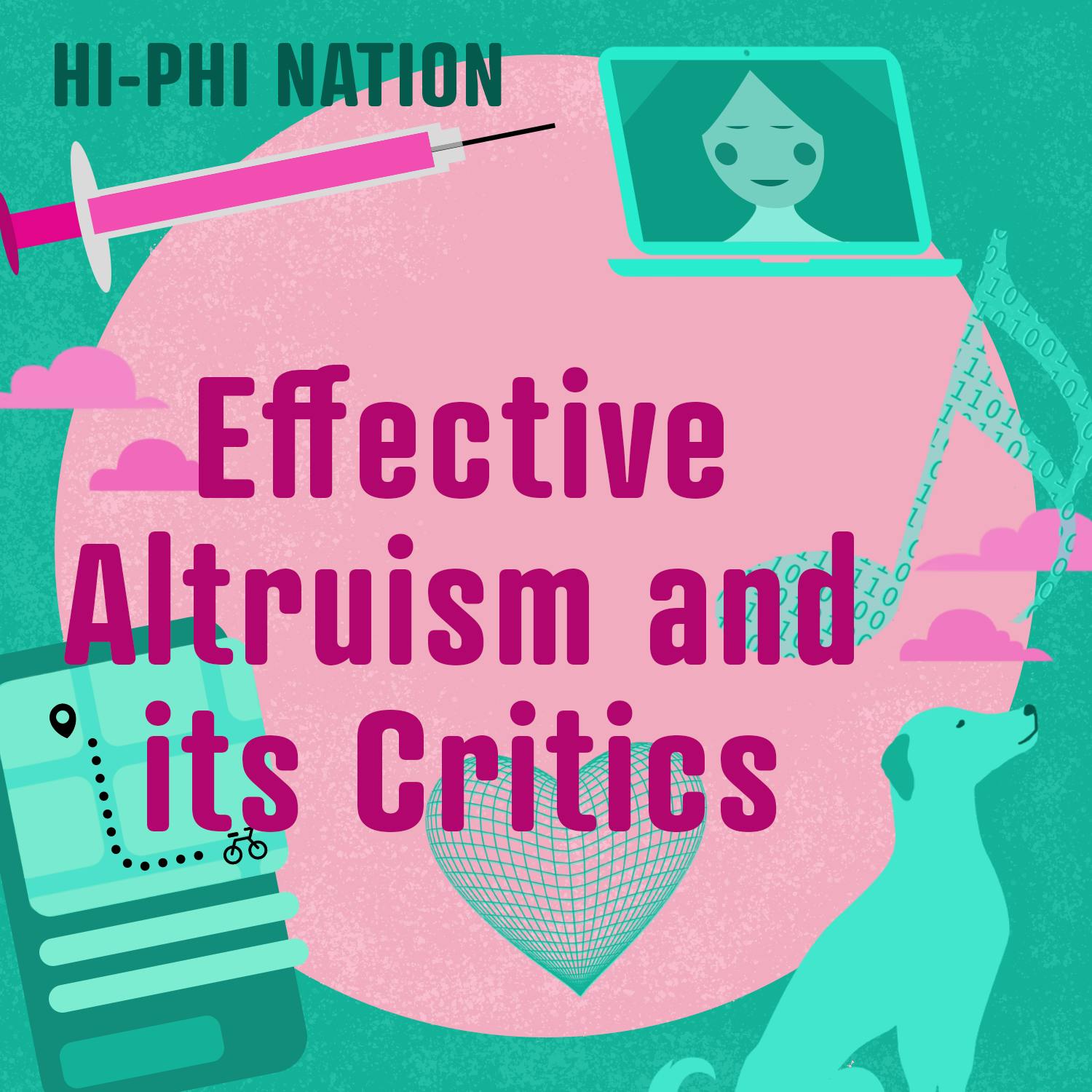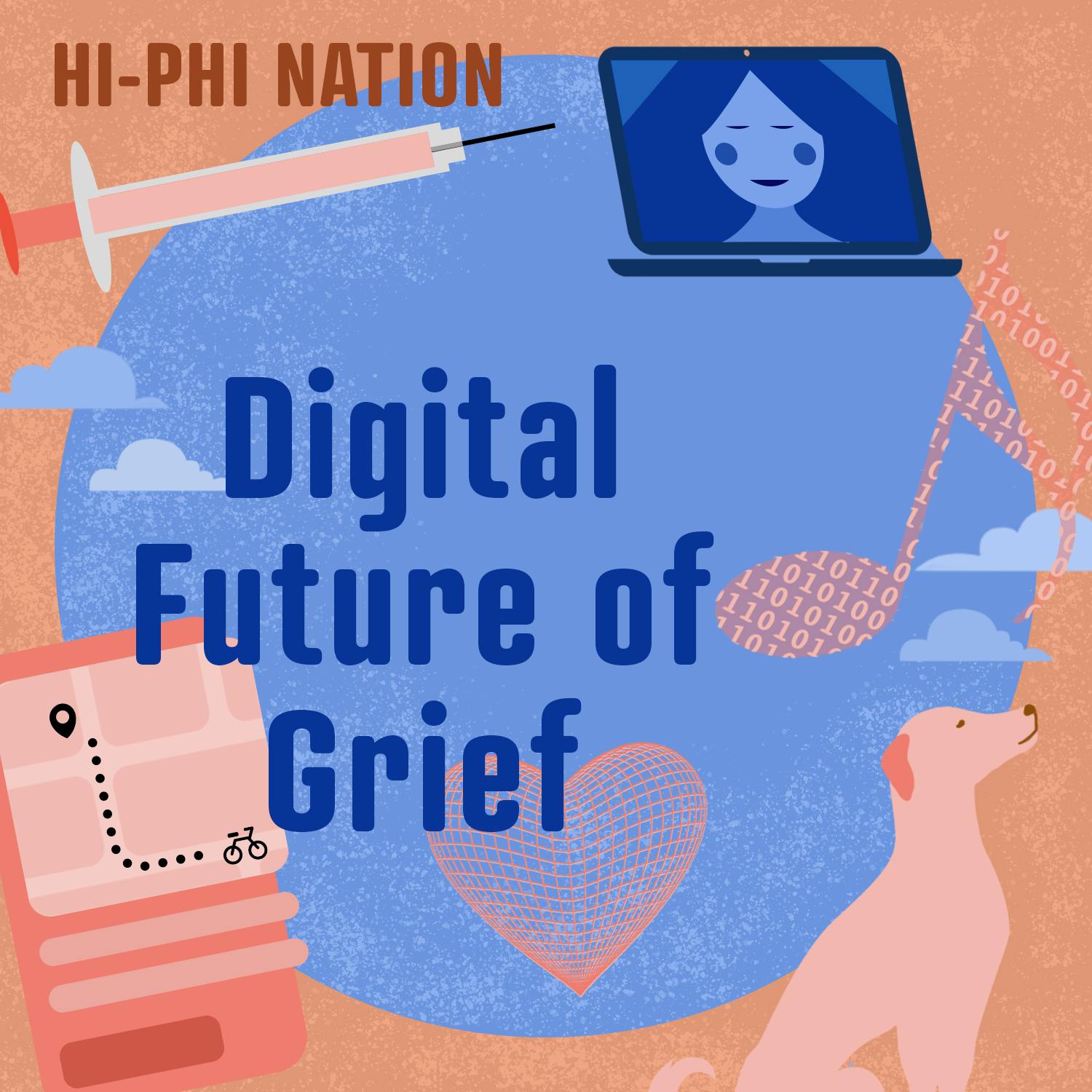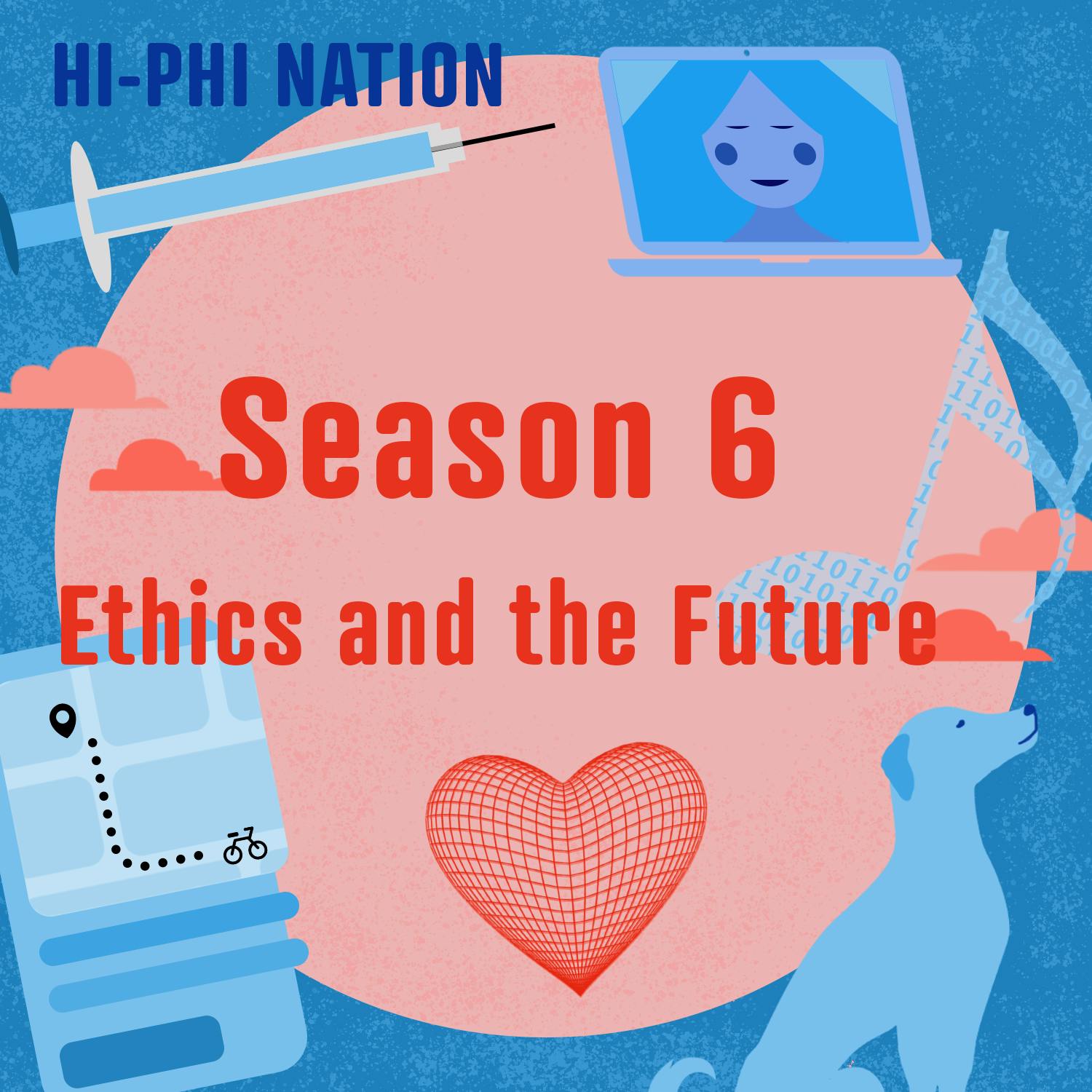Discover Slate Culture
Slate Culture

2318 Episodes
Reverse
Before 1990, there had never been a documented case of a patient getting HIV from a health care worker. Kimberly Bergalis changed that. Her claim that she’d been infected by her dentist would captivate and terrify the country. And the dentist, David Acer, would be made into a villain without America ever knowing who he really was.
This episode was written by Kelly Jones and Josh Levin, One Year’s editorial director. One Year’s senior producer is Evan Chung.
This episode was produced by Kelly Jones and Evan Chung, with additional production by Olivia Briley.
It was edited by Joel Meyer and Derek John, Slate’s executive producer of narrative podcasts. Merritt Jacob is senior technical director. We had mixing help from Kevin Bendis. We had production help this season from Jabari Butler.
Join Slate Plus to get a special behind-the-scenes conversation at the end of our season about how we put together our 1990 stories. Slate Plus members also get to listen to all Slate podcasts without any ads.
Learn more about your ad choices. Visit megaphone.fm/adchoices
Robert Mapplethorpe was one of the most famous photographers in the world—and one of the most controversial. When his work came to Cincinnati in 1990, it would be at the center of a vicious fight over obscenity and the First Amendment, one that threatened the future of art in America.
This episode of One Year was written by Evan Chung, One Year's senior producer. It was produced by Kelly Jones and Evan Chung, with additional production by Olivia Briley.
It was edited by Josh Levin, One Year’s editorial director, with Joel Meyer and Derek John, Slate’s executive producer of narrative podcasts. Merritt Jacob is our senior technical director.
Join Slate Plus to get a special behind-the-scenes conversation at the end of our season about how we put together our 1990 stories. Slate Plus members also get to listen to all Slate podcasts without any ads.
Learn more about your ad choices. Visit megaphone.fm/adchoices
In March 1990, a story broke that shocked the nation: George H.W. Bush had banned broccoli from Air Force One. The frenzy that came next would change the fate of a vegetable—and maybe even alter the course of a presidency.
This episode was written by Olivia Briley and Josh Levin, One Year’s editorial director. One Year’s senior producer is Evan Chung.
This episode was produced by Olivia Briley and Kelly Jones.
It was edited by Joel Meyer and Evan Chung.
Derek John is Slate’s executive producer of narrative podcasts.
Merritt Jacob is senior technical director.
Join Slate Plus to get a special behind-the-scenes conversation at the end of our season about how we put together our 1990 stories. Slate Plus members also get to listen to all Slate podcasts without any ads.
Learn more about your ad choices. Visit megaphone.fm/adchoices
A middle-aged single dad in Chicago was outraged by all the cigarette billboards popping up in Black communities. In 1990, he picked up a paint roller and became an anti-tobacco vigilante. And he did it all under a secret identity.
This episode was written by Josh Levin, One Year’s editorial director. One Year’s senior producer is Evan Chung.
This episode was produced by Kelly Jones, Olivia Briley, and Evan Chung. It was edited by Joel Meyer and Derek John, Slate’s executive producer of narrative podcasts.
Merritt Jacob is our senior technical director. We had mixing help from Kevin Bendis.
Join Slate Plus to get a special behind-the-scenes conversation at the end of our season about how we put together our 1990 stories. Slate Plus members also get to listen to all Slate podcasts without any ads.
Learn more about your ad choices. Visit megaphone.fm/adchoices
Pizza Hut’s adventure in the Soviet Union was unlike any restaurant opening before or since. It involved a fleet of submarines, a very special pizza topped with tuna and salmon, and a casual dining spot on a mission to change the world.
This episode was written by Kelly Jones and Josh Levin, One Year’s editorial director. One Year’s senior producer is Evan Chung.
This episode was produced by Kelly Jones and Evan Chung, with additional production by Olivia Briley.
It was edited by Joel Meyer and Derek John, Slate’s executive producer of narrative podcasts. Merritt Jacob is our senior technical director.
Join Slate Plus to get a special behind-the-scenes conversation at the end of our season about how we put together our 1990 stories. Slate Plus members also get to listen to all Slate podcasts without any ads.
Learn more about your ad choices. Visit megaphone.fm/adchoices
On this show we explore three different AI and machine-generated music technologies; vocal emulators that allow you to deep fake a singer or rapper’s voice, AI-generated compositions and text-to-music generators like Google Music LM and Open AI’s Jukebox, and musical improvisation technologies. We listen to the variety of music these technologies generate, and two guitarists face off against an AI in improvised guitar solos.
Along the way, we talk to philosophers of music Robin James and Theodore Gracyk about what musical creativity is and whether machines are more or less creative than human musicians, and Barry gives his take on each of the technologies and what they mean for the future of musical creativity.
Learn more about your ad choices. Visit megaphone.fm/adchoices
Curtis is setting aside a large chunk of money to donate to charity, and it is up to us to persuade him where he should donate it. Luckily, philosophers, economists, and the nonprofit world has been thinking a lot about this issue in recent years. On this episode, effective altruism’s defenders and critics try to persuade Curtis of where he should donate. Who is the most effective in persuading an ordinary person as to the right way to donate to charity? And do the recent scandals involving effective altruism’s biggest donor implicate its philosophical foundations?
We start with arguments that you should always try to save the most lives possible, no matter where they are on the planet. We then hear a critic of that view, who argues that local giving can also be a good. We then turn to the view that we should save humans from extinction from threats like pandemics, nuclear war, and AI takeover. And finally, we hear from a critic of that view, who says we should not blow future risks out of proportion.
Guests include philosophers Richard Yetter-Chappell (Miami), Savannah Pearlman (Indiana), Shakeel Hashim (Center for Effective Altruism), and Seth Lazar (Australia National University).
Learn more about your ad choices. Visit megaphone.fm/adchoices
Willy and Heidi were both gig workers for Shipt, the fast-delivery app for groceries or same-day shopping. In 2020, they both realised: the pay algorithm had changed. Now, they couldn’t tell what a job would pay, or whether it would earn or lose them money. Instead of just taking it, they decided to fight back.
In the gig economy, companies like Shipt, Instacart, and UberEats all use black box pay algorithms to try and get workers to accept gigs but hide information from them to do so. Early in the pandemic, a rag tag group of gig workers tried to resist, and found someone at MIT to help them.
Host Barry Lam talks to them about the steps they took, and political philosopher Daniel Halliday (University of Melbourne) talks about the differences between wage labor and freelance labor and why he thinks the biggest gig economy companies are morally suspect. Then, we talk the future of regulation and worker-owned apps and delivery platforms.
Guests include Drew Ambrogi (coworker.org), Dan Calacci (MIT). This is an in-depth, longform version of a story originally done for WNYC studio’s Radiolab in their Gigaverse episode.
Learn more about your ad choices. Visit megaphone.fm/adchoices
We explore the lives of people who are in love with their AI chatbots. Replika is a chatbot designed to adapt to the emotional needs of its users. It is a good enough surrogate for human interaction that many people have decided that it can fulfill their romantic needs. The question is whether these kinds of romantic attachments are real, illusory, or good for the people involved. Apps like Replika represent the future of love and sex for a subpopulation of people, so we discuss the ethics of the practice.
Host Barry Lam talks to philosophers Ellie Anderson and David Pena-Guzman of the Overthink podcast about what theories of love would say about these kinds of relationships. AI lovers include Alex Stokes and Rosanna Ramos. Original scoring by Aaron Morgan.
Learn more about your ad choices. Visit megaphone.fm/adchoices
A zoopolis is a future society that philosophers envision where wild, domesticated, and denizen animals have full political and legal rights. What would that look like? In this episode, we look at how animals were put on trial in medieval European courts, and how animal rights advocates and bringing animals back into the courtrooms to sue people and the US government.
We then look at what the science of animal minds tells us about how much agency animals have, and envision what political and legal rights various animals would have in a zoopolis. From there, we discuss and debate whether we should be allowed to farm animals, control their reproduction, and have them work for us.
Co-produced with Alec Opperman, guests include historian Gabriel Rosenberg, attorney Monica Miller, and animal minds researcher Professor Kristin Andrews.
Learn more about your ad choices. Visit megaphone.fm/adchoices
When Justin’s mom was diagnosed with cancer, he knew he wanted to keep talking to her after she died. So together they made an AI version of her, training it on her speech patterns and memories. Now he is scaling his findings so that anyone can continue their relationships with loved ones after their deaths. Justin even believes this can one day lead to digital immortality.
Grief experts are only now dealing with bereaved people who create digital versions of their loved ones. We look at what they say about the phenomenon, and what philosophers think about whether the best AI version of a person can actually be them.
Guests include Alexandra Salmon, Justin Harrison, CEO of You, Only Virtual, Dr. Mary-Frances O’Connor, and Dr. Debra Bassett.
Learn more about your ad choices. Visit megaphone.fm/adchoices
Coming April 11, 2023, Season 6 of Hi-Phi Nation will look at the future; of work, of love and sex, life and death, our relationship with animals, creativity in music, and philanthropy. Stories include people trying to create digital avatars of dead loved ones, people in exclusive relationships with AI chatbots, animals who are seeking legal protection in courts, the gig economy, AI music, and effective altruism. The episodes will draw out the most interesting moral and philosophical issues from the current path of artificial intelligence technology, data science, and cultural and legal trends.
Learn more about your ad choices. Visit megaphone.fm/adchoices
Jonas Salk’s polio vaccine transformed America and the world in ways that seemed unimaginable. But in 1955, there was a moment when everything was in doubt. This week, Josh Levin talks with Dr. Paul Offit about the medical mystery that threatened to derail one of history’s most important scientific breakthroughs.
Josh Levin is One Year’s editorial director. One Year’s senior producer is Evan Chung.
This episode was produced by Kelly Jones, Evan Chung, and Sophie Summergrad.
It was edited by Josh Levin, Joel Meyer, and Derek John, Slate’s executive producer of narrative podcasts.
Merritt Jacob is our senior technical director.
Join Slate Plus to get a bonus 1955 episode at the end of the season. Slate Plus members also get to listen to all Slate podcasts without any ads. Sign up now to support One Year.
Learn more about your ad choices. Visit megaphone.fm/adchoices
In the early days of television, women struggled to find their place. In 1955, they found it: forecasting the weather, on stations all across the country. But as these “weather girls” transformed the airwaves, a group of powerful men hatched a plan—one that had the potential to push women weathercasters off the air forever.
Josh Levin is One Year’s editorial director. One Year’s senior producer is Evan Chung.
This episode was produced by Kelly Jones and Evan Chung, with additional production by Sophie Summergrad.
It was edited by Joel Meyer and Derek John, Slate’s executive producer of narrative podcasts.
Merritt Jacob is our senior technical director.
Join Slate Plus to get the first three episodes of One Year: 1955 right away—and a bonus 1955 story at the end of the season. Slate Plus members also get to listen to all Slate podcasts without any ads. Sign up now to support One Year.
Learn more about your ad choices. Visit megaphone.fm/adchoices
In 1955, the frontiersman Davy Crockett became the most famous man in America, more than a century after his death at the Alamo. This week, Evan Chung dives into a cultural phenomenon nobody saw coming. Not the kids in coonskin caps who started the craze, not the parents whose money fueled it, and least of all Walt Disney, the legendary studio head who created it totally by accident.
Josh Levin is One Year’s editorial director. One Year’s senior producer is Evan Chung.
This episode was produced by Kelly Jones and Evan Chung, with additional production by Sophie Summergrad.
It was edited by Joel Meyer and Derek John, Slate’s executive producer of narrative podcasts.
Merritt Jacob is our senior technical director.
Join Slate Plus to get the first three episodes of One Year: 1955 right away—and a bonus 1955 story at the end of the season. Slate Plus members also get to listen to all Slate podcasts without any ads. Sign up now to support One Year.
Learn more about your ad choices. Visit megaphone.fm/adchoices
The Cannon Street All-Stars dreamed of playing in the 1955 Little League World Series. Their biggest obstacle didn’t come on the field. In the year that Rosa Parks refused to give up her seat on a public bus, these Black 12-year-olds became unlikely civil rights pioneers—and faced the wrath of a white society that wasn’t ready to change.
Josh Levin is One Year’s editorial director. One Year’s senior producer is Evan Chung.
This episode was produced by Kelly Jones and Evan Chung, with additional production by Sophie Summergrad.
It was edited by Joel Meyer and Derek John, Slate’s executive producer of narrative podcasts.
Merritt Jacob is our senior technical director.
Join Slate Plus to get the first three episodes of One Year: 1955 right away—and a bonus 1955 story at the end of the season. Slate Plus members also get to listen to all Slate podcasts without any ads. Sign up now to support One Year.
Learn more about your ad choices. Visit megaphone.fm/adchoices
On Aug. 1, 1942, the nation’s recording studios went silent. Musicians were fed up with the new technologies threatening their livelihoods, so they refused to record until they got their fair share. This week, Evan Chung explores one of the most consequential labor actions of the 20th century, and how it coincided with an underground revolution in music led by artists like Charlie Parker and Dizzy Gillespie.
One Year is produced by Evan Chung, Sophie Summergrad, Sam Kim, and Josh Levin.
Derek John is senior supervising producer of narrative podcasts and Merritt Jacob is senior technical director.
Slate Plus members get to hear more about the making of One Year. Get access to extra episodes, listen to the show without any ads, and support One Year by signing up for Slate Plus for just $15 for your first three months.
Learn more about your ad choices. Visit megaphone.fm/adchoices
After Joe Mauri gets evicted from his New York apartment, he becomes a star in the USSR, the subject of a documentary about the injustices of capitalism. But this Cold War icon was using the Soviets just as much as they used him.
One Year is produced by Evan Chung, Sophie Summergrad, Sam Kim, Madeline Ducharme, and Josh Levin. Mixing by Merritt Jacob.
Derek John is Sr. Supervising Producer of Narrative Podcasts and Merritt Jacob is Sr. Technical Director.
Slate Plus members get to hear more about the making of One Year. Get access to extra episodes, listen to the show without any ads, and support One Year by signing up for Slate Plus for just $15 for your first three months.
Learn more about your ad choices. Visit megaphone.fm/adchoices
On May 16, 1986, a man with a bomb held an entire elementary school hostage in the tiny town of Cokeville, Wyoming. Instead of becoming victims of unimaginable tragedy, all of the hostages in this predominantly Mormon community survived. But how? This week, Evan Chung explores what—or who—saved the children of Cokeville.
One Year is produced by Evan Chung, Sophie Summergrad, Sam Kim, Madeline Ducharme, and Josh Levin.
Derek John is Sr. Supervising Producer of Narrative Podcasts and Merritt Jacob is Sr. Technical Director.
Slate Plus members get to hear more about the making of One Year. Get access to extra episodes, listen to the show without any ads, and support One Year by signing up for Slate Plus for just $15 for your first three months.
Learn more about your ad choices. Visit megaphone.fm/adchoices
In Seattle, a pack of voracious sea lions decimates the local fish population. When fireworks and an underwater air horn don’t scare away the whisker-y mammals, bureaucrats and scientists are faced with a thorny question: Who decides which creatures get to live, and which have to die?
One Year is produced by Evan Chung, Sophie Summergrad, Sam Kim, Madeline Ducharme, and Josh Levin.
Derek John is Sr. Supervising Producer of Narrative Podcasts and Merritt Jacob is Sr. Technical Director.
Slate Plus members get to hear more about the making of One Year. Get access to extra episodes, listen to the show without any ads, and support One Year by signing up for Slate Plus for just $15 for your first three months.
Learn more about your ad choices. Visit megaphone.fm/adchoices















So very very sorry for the loss of Grant Wahl. As displayed in this interview, just before his untimely death, Grant was one of the leading voices on US soccer, and our foremost journalist on the beautiful game.
Julia was 100% on here. I love hearing her voice.
let's be sure to get a sandwich shop plug in before talking about our feelings
you made all of my thoughts a reality in this show ahah
I enjoyed the podcast. There is one host however who has the extremely annoying habit of saying 'like' every two/three seconds. Does she listen to herself speak? The other two speakers were fine.
It must really pain this guy that in all of his attempts to try to phrase everything in terms of racism and exclusion, he was never actually able to provide a link between the position of rap music on the charts and some vast societal oppression or conspiracy. All he really did was point to a few noted incidents of bribery. But how much influence could that bribery have had? These charts were kept week after week after week and the bribery was the exception, not the rule. And for it to have the influence that he wants us to believe it had, that would have to be a lot of bribery on a very consistent basis and very widespread. That simply wasn't the case This is nothing new for this guy, though. He tried to blame the fall of disco on racism and homophobia so I knew what I was getting into when I started listening to this one. It's kind of sad, really. There was fertile ground here to really explore the nature of the charts and how they changed. But instead he preferred to try to turn thi
Unfortunately, I'm going to have to call b******* on yet another podcast. Janet Jackson did not suffer greatly in the public eye because of the wardrobe malfunction at the Super Bowl. Her popularity had already been flagging for quite awhile when that came about. There was about a week worth of people sort of scratching their heads but it's not like she didn't issue an apology. Everyone moved on. Unfortunately for Janet, they were already moving on to other artists long before that. Just as in another podcast he seems to want to blame the demise of disco on homophobia and racism, here again he fails to acknowledge that sometimes things just run their course.
You know, I was in college during this Janet Jackson album. But I had never heard the term "New Jack Swing" until I started listening to this guy's podcasts decades later. At no time did we refer to Janet Jackson's music or Keith sweat's music or Bobby Brown's music as "New Jack Swing." We had the term R&B, it seemed to do the trick, and that's what we called it. I get the distinct impression that terms like "New Jack Swing" are created by people trying to set themselves apart who want to convince themselves that they have worthwhile opinions.
I'm glad there was a man there to explain to the 13-year-old girl with the retainer how movies work.
I had to sub once I realized that this was the first in about a half-dozen reviews of this movie where the people doing the reviewing seemed to actually get what was going on in the movie they were watching. The one thing I would ask people to reconsider, though, is this assertion that runs like a thread through all of the reviews I've listened to, which is that the boyfriend is necessarily horrible. He doesn't seem like a particularly great guy, but most of his transgressions took place while under the influence of God knows what. By contrast, she is an anchor of a girlfriend. Seriously, ask almost any guy and he will tell you that there is no way he would want someone like that constantly around. I can't blame him for having wanted to have gotten rid of her a long time ago. I would say the worst thing about him was that he allowed the relationship to drag on because she was so needy all the time.
you can tell the bullshit right off the back lmao. C list superhero? yea you don't know much about the comics. this was the first ep. of the this cast and the last they have horrible memory with the other movies, they say the most unthought through shit, complains about moronic made up identity political issues in a movie. straight trash
Stephen might come off a bit snobby but it's part of the fun of it! He's the snooty one, he balances out Dana who is super sweet. I've gotten to know them over the years so now I wouldn't want them to change.
As a big fan of other Slate podcasts, I was pretty excited about this one, but it really is the weakest of the bunch. The participants are sooo snobbish, which I suppose makes sense, but it is not immediately apparent upon what grounds they are snobbish. On the Political Gabfest, Dickerson knows politics, Bazelon knows the law, Plotz...well, he's editor now so he does what he wants. On the Culture Gabfest, you get a couple of mildly literate twenty-somethings and a thirty-something talking down to the world. No thanks.
I agree with most of what has been said -- both the good and the bad -- yet this is still my favorte Slate podcast. Hearing the writers present such overly complicated, pretentious arguments about trivial details of pop culture makes me nostalgic for my college years. Outside of academia, there are few places where you can hear such trumped up commentary of, say, Miley Cyrus's decisions. There are lots of cringe-worthy moments, but, like that old college boyfriend who compared Seinfeld to Beckett, I actually find them endearing. Metcalf's accent is hard on my ears, though. Is it from a region I haven't visited, or is it the vocal manifestation of pretentiousness? I agree that Stevens and Turner are easier to take. Perhaps they will start to deflate more of Metcalf's pompous comments in the future. I wish the cultural gabfest recorded more than twice a month. In contrast, I find the political gabfest more grating by the week. They veer into in-jokes and tedious personal anecdotes that d
Sadly, the Slate Culture Gabfest doesn't hold a candle to the Political Gabfest. Even for a culture snob like me, this show is a little hard to take. One problem is the main host, Stephen Metcalf. He has a creepy way of overenunciating—it sounds like he chews each word twelve times before swallowing it. That, combined with his use of pretentious phrases like "the creative underclass" (referring to himself) and occasional lapses into French, induce mild nausea after prolonged exposure. The other participants, Turner and Stevens, are easier on the ears and slightly more down-to-earth. And all of the hosts are clearly intelligent and well-informed. But since they all have two conflicting opinions about almost everything, the conversation gets bogged down and goes nowhere. Everything good is a guilty pleasure, and everything bad has some sort of redemptive flipside. And you can cut the pretension in the air with a knife. The Culture Gabfest needs a co-host with a functioning BS detector. S